#this is very of the moment Rob Manfred well done
Explore tagged Tumblr posts
Text
someone said the new pants will do for MLB what Taylor Swift did for NFL looooool
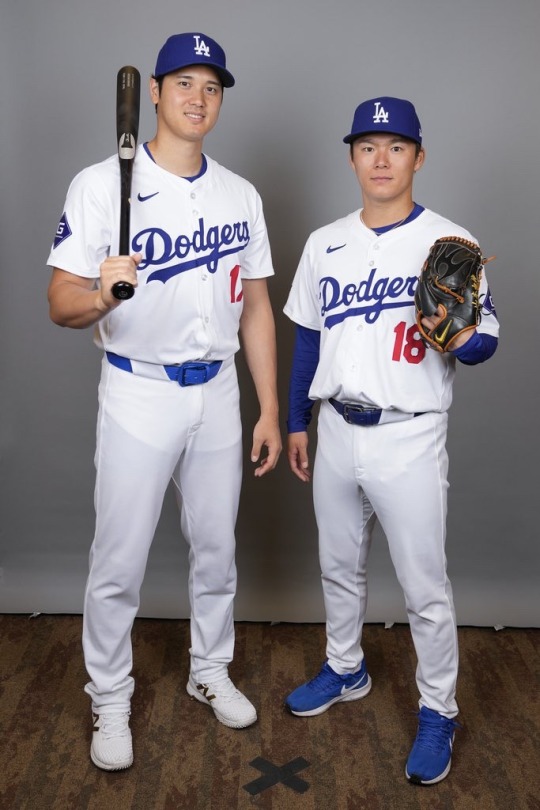
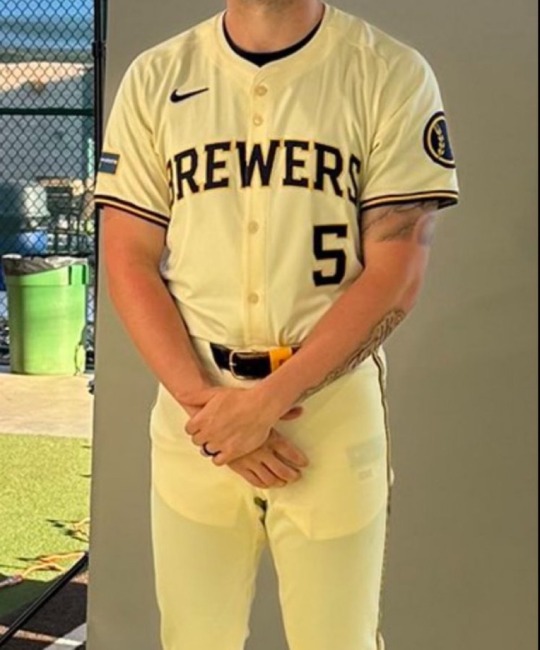
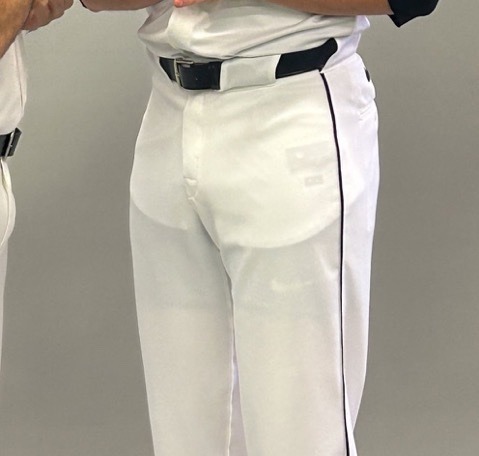
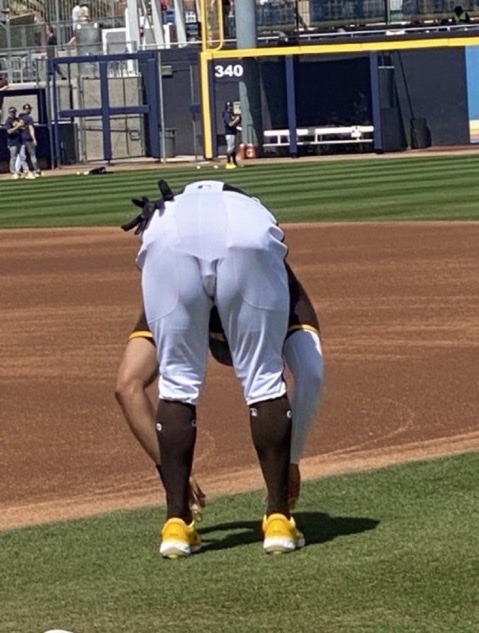
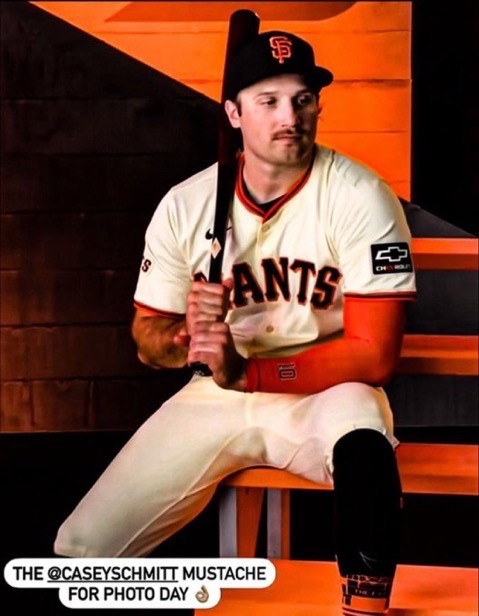

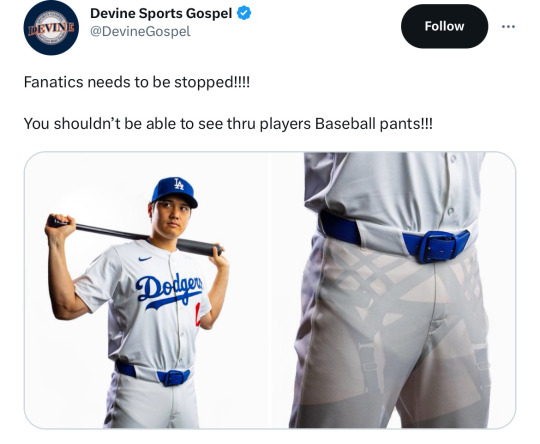
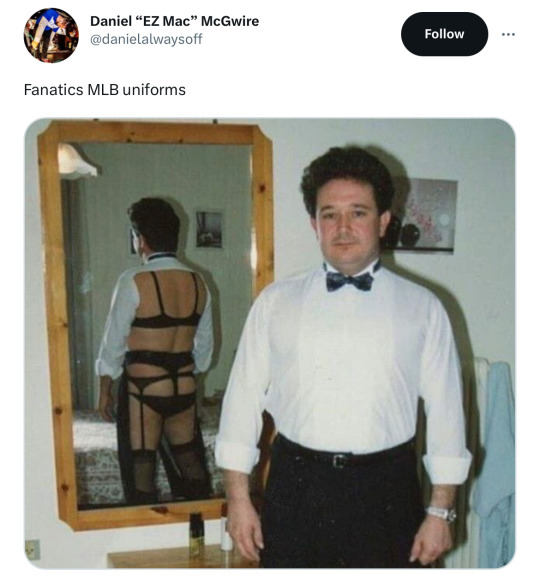
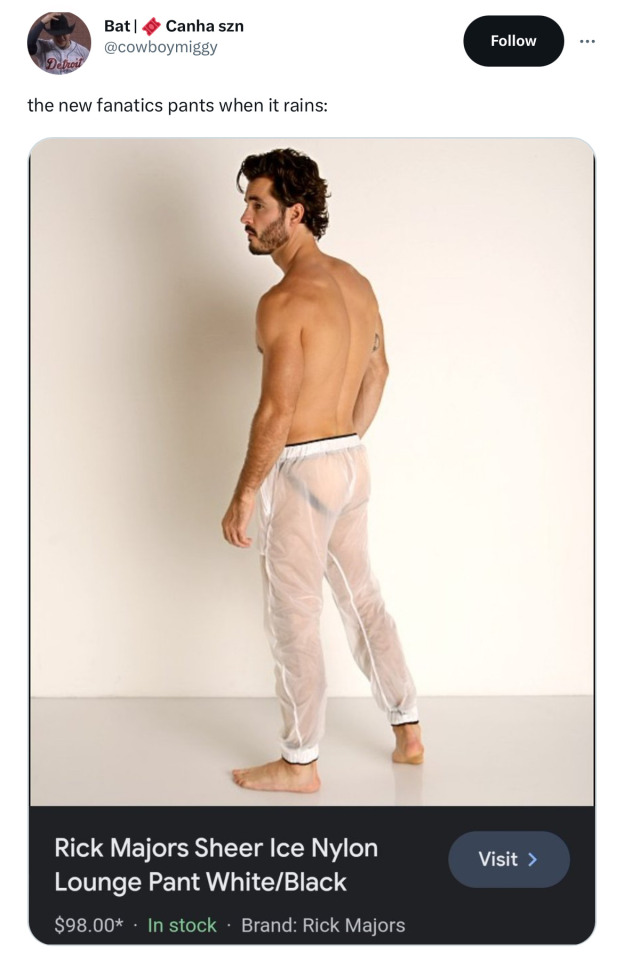
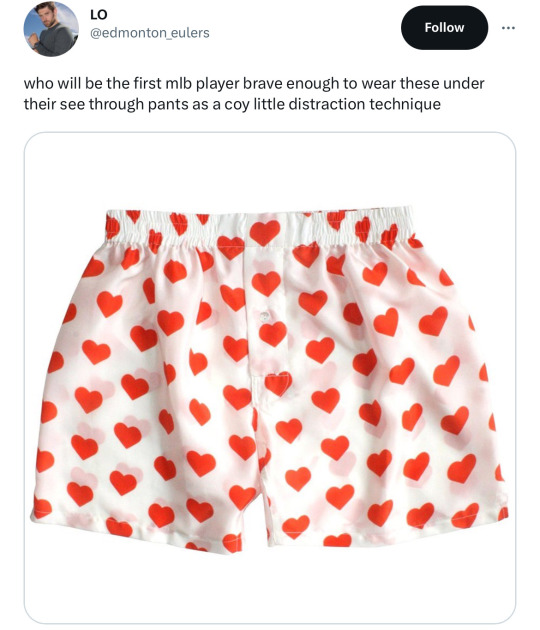
this is how we grow the sport
15K notes
·
View notes
Link
via Politics – FiveThirtyEight
For a newsroom like FiveThirtyEight’s, 2019 may as well been part of 2020. Such is the peril of covering electoral politics. But before 2020 actually arrives, we wanted to take a moment and remember some of our favorite features from the past year that the news cycle hasn’t rendered obsolete. There was a lot of good stuff! This isn’t a comprehensive list, but it’s a good place to start.
Politics
“Just because Republicans aren’t winning in cities doesn’t mean that no Republicans live there,” Rachael Dottle wrote earlier this year. Using historical vote data, she showed where every city’s Republican enclaves were, and which cities were the most politically segregated.
Clare Malone went home to Cleveland’s suburbs to examine how the 2016 election laid bare political differences among white Americans. Clare found that the fissures had been lying in wait for decades.
How do you measure a gerrymandered district? Ella Koeze and William Adler showed how math can help expose which districts have been manipulated along partisan lines.
Black politicians on the local level live different political lives than black politicians who want to be president. In August, Perry Bacon Jr. dug into why that is.
Acitivists who want to restrict access to abortion made some progress on the state level this year. Amelia Thomson-DeVeaux categorized hundreds of abortion restrictions to show why the anti-abortion movement is escalating.
Automatic voter registration is a recent hobbyhorse of progressive activists. But is it the panacea it’s made out to be? Nathaniel Rakich looked at what happened when 2.2 million people were automatically registered to vote.
We’re told over and over again that politicians need to appeal to centrist moderates if they hope to win nationally. But Lee Drutman’s analysis suggests that narrative isn’t true. The moderate middle is a myth.
Clare Malone spent weeks tailing former Vice President Joe Biden to understand a contradiction at the center of his presidential campaign: black voters provide a lot of his support, but one of his biggest vulnerabilities is his record on race.
Scott Olson / Getty Images
Speaking of Biden, it can sometimes seem like it’s tough to dislodge a primary front-runner. But Geoffrey Skelley chronicled all the other front-runners who haven’t won. The list is long.
Amelia Thomson-DeVeaux and Dan Cox wrote about one more way millennials are different than boomers: they’ve left religion behind, and they’re probably not coming back.
In the very first House vote on impeachment, to simply formalize the process, Perry Bacon Jr. identified the political faultlines that would define the inquiry into the Ukraine scandal. Hint: They had to do with partisanship.
Does it seem to you like President Trump’s job approval ratings hardly budge? Well, that’s true. But Geoffrey Skelley looked at how unusual Trump’s ratings are historically.
The number of women in the Democratic field this cycle is unprecedented. And we don’t have any research on how sexism might affect such a race. But that doesn’t mean we know nothing about sexism’s electoral impact — Amelia Thomson-DeVeaux and Meredith Conroy put together a link-heavy introduction to what we know already, and how that could influence the 2020 primary.
Sports
We try and find overlap between politics and sports wherever we can, but that doesn’t mean we’re always good at knowing which is which. Earlier this year Tony Chow quizzed us on whether color commentary happened after a game or after a Democratic primary debate.
“Space Jam 2” is coming, and we’re hoping to be LeBron James’s casting director. We used our NBA metrics to cast the true successors to the cast of the original “Space Jam” movie.
It’s always tough to measure how good a defender is in the NFL. But Michael Chiang figured out a clever new way: look at where opposing offenses aren’t throwing.
JEAN WEI
How many clichés are in your average college fight song? We tried to figure out the answer.
Chris Herring attempted to solve one of the great mysteries of the NBA: “Why are there so many bats at Spurs games?”
Another big mystery: How do you accurately evaluate college quarterbacks for the pro game? Josh Hermseyer looks at how the NFL does it (poorly), and offers some alternative solutions.
EMILY SCHERER / GETTY IMAGES
Some people watch the Super Bowl for the football, and some people watch it for the halftime show. Gus Wezerek belongs to the latter, and he used data to rank 25 years of Super Bowl halftime shows.
How national is your college football team’s fanbase? And why is a random county in South Dakota buying so many USC tickets?
MLB commissioner Rob Manfred has been on a warpath against the parts of baseball he thinks are slowing down the game. Travis Sawchik found a culprit Manfred hasn’t targeted: foul balls.
It’s still relatively early in the 2019-20 NBA season, but the pairing of LeBron James and Anthony Davis on the Los Angeles Lakers has been really good. Actually, Neil Paine found that it’s been historically great.
We put Nate Silver in a dinosaur costume.
Other gems
SONNIE KOZLOVER
Most personality quizzes on the internet are bunk. This one is backed by science.
Conspiracy theories permeate our politics and culture. But get used to them. Maggie Koerth wrote that they can’t be stopped.
We publish a lot of forecasts here at FiveThirtyEight. But are they any good? Jay Boice and Gus Wezerek collected virtually every forecast FiveThirtyEight has ever done to find out. The short answer: Yes, they’re pretty good.

Christie Aschwanden had simple advice for those who work out: you don’t need sports drinks to stay hydrated.
0 notes
Text
Kevin Pillar Can Redeem Himself by Becoming an LGBT Ally in Baseball
This article originally appeared on VICE Sports Canada.
Kevin Pillar's regrettable, out-of-frustration remark last week instantly changed the glowing discussion about him.
Agitated by a Braves reliever who quick-pitched him, the Blue Jays center fielder mouthed a homophobic slur after striking out that was caught on camera and spread rapidly on social media. There was no confusing what Pillar said: The 26-year-old shouted the f-word at Atlanta's Jason Motte in a brief but heated moment that was met with disdain. It offered a quick reminder of the offensive and hurtful language that still exists in sports culture in 2017, and was damaging to Pillar's otherwise stellar reputation.
"Any time something like this happens, your initial reaction is disappointment," Brian Kitts, co-founder and president of LGBT supporting organization You Can Play, told VICE Sports. "You like to think that sports in particular and society in general have moved on. It's just not acceptable. At some point you're doing it to denigrate or make somebody else feel bad. We've all played sports and understand what happens, but those slurs are not part of the game and don't need to be."
Pillar, who was handed a two-game suspension by the Blue Jays, took steps to own up to his mistake the next day, apologizing to the LGBT community for the lack of respect he displayed, while acknowledging that the word has no place in today's society. He said he was "embarrassed" and felt "horrible," and spoke about using this lesson as an opportunity to better himself.
"I think that Kevin handled it really well," Kitts said. "We always look for an immediate understanding that you've messed up and then that acknowledgement that you can learn from this. That's the best we can hope for when we work for this type of culture change, that you acknowledge there's an issue and you either want to learn more about it or make it better in some way."
Watch more from VICE Sports: Brian Anderson on Being a Gay Professional Skateboarder
MLB ambassador for inclusion Billy Bean said he was extremely disappointed and heartbroken when he first heard of the incident, but felt Pillar's apology was "very earnest and sincere." Bean, the most recognized openly-gay figure in the sport, recalls the "f-word" uttered frequently in clubhouse conversation during his playing days, which lasted into the early 1990s after having spent parts of six seasons with the Tigers, Dodgers, and Padres. That lack of tolerance and inclusiveness is partially what drove him to retirement in 1995 at the age of 31, a decision he regrets today. He still loved the game, but as an active player did not feel comfortable disclosing that he was gay (he went public with his sexual orientation in 1999).
Bean's concern is that derogatory comments like Pillar's—although seemingly not premeditated nor meant to be intentionally slanderous to the LGBT community—is a step backward and potentially discouraging to players who identify as gay or bisexual.
"We were not told that [saying homophobic slurs] was unacceptable. So you perpetuate stereotypes, you perpetuate a collective, embedded thought that, 'Well I guess it's OK if somebody that I look up to uses that terminology,'" Bean told VICE Sports. "That's why it's so important from ownership to team presidents to managers that we change that culture where hopefully the first thought that comes to an athlete in the heat of the battle won't be a word that's disparaging towards the LGBT community."
The problem with change, especially with issues of this nature, is that it comes slow. Painfully slow. Mindsets, formed at an early age, can be difficult to alter.
It has been over 70 years since Jackie Robinson broke the colour barrier and became the first African American to play an MLB game in 1947, yet just a couple of weeks ago racism was brought to the forefront again when Orioles outfielder Adam Jones was the subject of slurs at Boston's Fenway Park.
LGBT activists concede that this type of language is difficult to eradicate from the game.
Billy Bean addresses the media on the Mets' Pride Night in summer 2016. Photo by Andy Marlin-USA TODAY Sports
"We look at this type of work as a long game. It took years and years to get language involving race or religion out of locker rooms and sports venues so we see this as the same thing," Kitts said. "We understand that it takes a while; you start using this type of language when you're 10 or 11 years old and you grow up with it. I don't think it's a surprise that it still gets used."
The battle against the use of homophobic terminology is in its infancy compared to the one against racism. It was only in 2013 that MLB issued a zero-tolerance policy prohibiting players from harassing and discriminating against other players based on their sexual orientation.
"Five years ago, we weren't having these types of discussions at all. I think that with the big leagues we've got and a lot of the groups we work with who are even willing to have these discussions means that you're making progress," Kitts said.
Pillar's necessary suspension demonstrated that there's no admissible excuse for using a gay slur. While there's surely differing opinions on whether an unpaid two-game ban was the correct punishment, the overwhelming reaction showed that people do care and demand accountability.
"Ten years ago, this would not be the case. It would have come and gone and people would have said, 'It's a shame he got caught saying it.' Players are ultimately going to be responsible for their own actions," Bean said. "But the Blue Jays stood up immediately—Pillar is a huge part of their organization but even still, they said loud and clear this is unacceptable behaviour within our organization."
Blue Jays president Mark Shapiro (left) with MLB commissioner Rob Manfred. The Blue Jays consulted with the league and PA about Pillar's punishment. Photo by Dan Hamilton-USA TODAY Sports
As he has continued to grow and adapt in his own role, Bean's message to players about inclusion has become more philosophical in nature. He has tried to emphasize the responsibility and power that comes with the platform they hold as MLB players. Nowadays, especially on the field, it is difficult to do or say anything and not get caught on camera. Even one momentary lapse of judgment has the chance to instantly go viral on social media.
While it's too early to gauge what type of long-term damage this incident will have on Pillar's reputation, the talk surrounding Toronto's leadoff hitter quickly shifted from his breakout year to his worst moment as a professional. Discussion and perception can change on a dime.
"The players move our message faster than anyone else can in a good or bad way," Bean said. "One of the ways that I want to challenge the players is to ask them, 'Do you want to be remembered for what you do on the field or what you've said in a moment of indiscretion?'
"You work a lifetime to get to the big leagues and it's a lot in the heat of the battle trying to think clearly—more than one person has made a mistake in that situation."
If Pillar makes an effort, the discussion can get back to what he's doing on the field. Photo by Kim Klement-USA TODAY Sports
Ducks captain Ryan Getzlaf got caught up in his own controversy days after Pillar for making a comment the NHL deemed inappropriate but many felt was homophobic. And in April 2016, then-Blackhawks forward Andrew Shaw was involved in a similar situation to that of Pillar, as he was caught on camera using a homophobic slur and was levied a one-game suspension. He made an effort over the last year after getting traded to Montreal to make amends for his actions, and volunteered to be the Canadiens' You Can Play ambassador for the NHL's "Hockey Is For Everyone" campaign this season.
Taking action like Shaw did is how Pillar can help promote real change and show the LGBT community he stands by their side.
"Andrew did the appropriate apology but I think the other thing you look for is what someone is willing to do and he became an advocate for his team," Kitts said. "The team had already designated somebody else as their ambassador and Andrew stepped up and said he would like to be the one to work on behalf of the LGBT outreach that the team was doing. I think that says a lot about his character and his willingness to acknowledge the mistake and do something to try to make it better, not just for him but for everyone who was offended."
Like Shaw at the time, Pillar said that he did not want this moment to define his career. His manager John Gibbons said the same thing. As far as Kitts and members of You Can Play are concerned, it does not have to.
"What defines you is what you do in the aftermath of a situation where a mistake has been made," said Kitts. "It's about the apology and then genuinely understanding how a kid can be hurt by this language and those attitudes and then following up in a way that provides some education to everybody.
"When somebody makes a mistake and is willing to say they want to be part of the discussion and educational process, that's ideal."
Billy Bean throws out a first pitch while supporting victims of the Orlando terrorist attack. Photo by Kim Klement-USA TODAY Sports
Bean stressed that it's important for those hurt by Pillar's comments to be willing to forgive if he makes a tangible effort to make amends for his actions. That, he said, will help move the conversation forward and promote positive change.
"I would implore anybody in my own community that if we don't have compassion for people making an effort to change, then all the great bravery and pioneering efforts of the LGBT community to change the course of history and stereotypes and fighting for equal civil rights goes by the wayside," Bean said. "I would have a difficult time relating to someone who says you are one-and-done in this life and ask them how they would like to be treated if they ever make a mistake."
As society works to continue advancing tolerance and inclusiveness, the only way to do that is for there to be consequences at every indiscretion, which is why Pillar's suspension was appropriate.
Damage has already been done, but what matters now is his actions moving forward. Pillar has the opportunity and platform to turn this situation into a positive.
Kevin Pillar Can Redeem Himself by Becoming an LGBT Ally in Baseball published first on http://ift.tt/2pLTmlv
0 notes